Our Neuromuscular Medicine Team
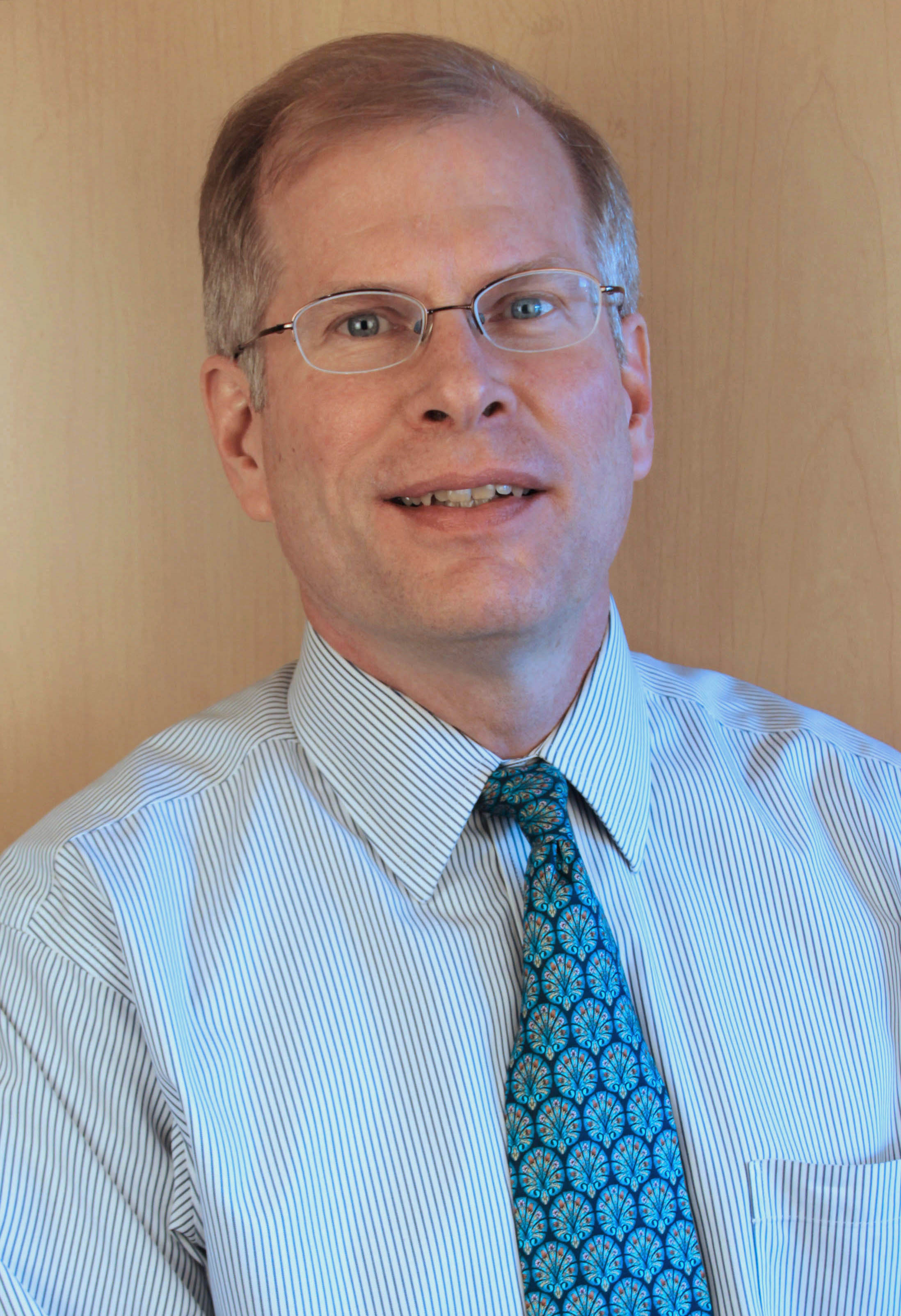
Lawrence Hayward, MD, PhD
Lawrence Hayward, MD, PhD
Dr. Hayward, professor of neurology, director of UMass Chan Neuromuscular Medicine Division, and physician-scientist serves as director of the multidisciplinary Neuromuscular Medicine and FSHD Muscular Dystrophy Clinics. His research focuses on defining molecular mechanisms that cause selected neuromuscular diseases, including ALS (amyotrophic lateral sclerosis), FSHD (facioscapulohumeral) muscular dystrophy, and hyperkalemic periodic paralysis, toward designing more effective treatments for patients with these conditions.
Dr. Hayward investigated gene regulatory mechanisms in developing skeletal muscle in the laboratory of Robert J. Schwartz and completed the MD, PhD program at Baylor College of Medicine; Massachusetts General Hospital, neurology residency program, and Howard Hughes Medical Institute, neuromuscular postdoctoral and clinical fellowships.
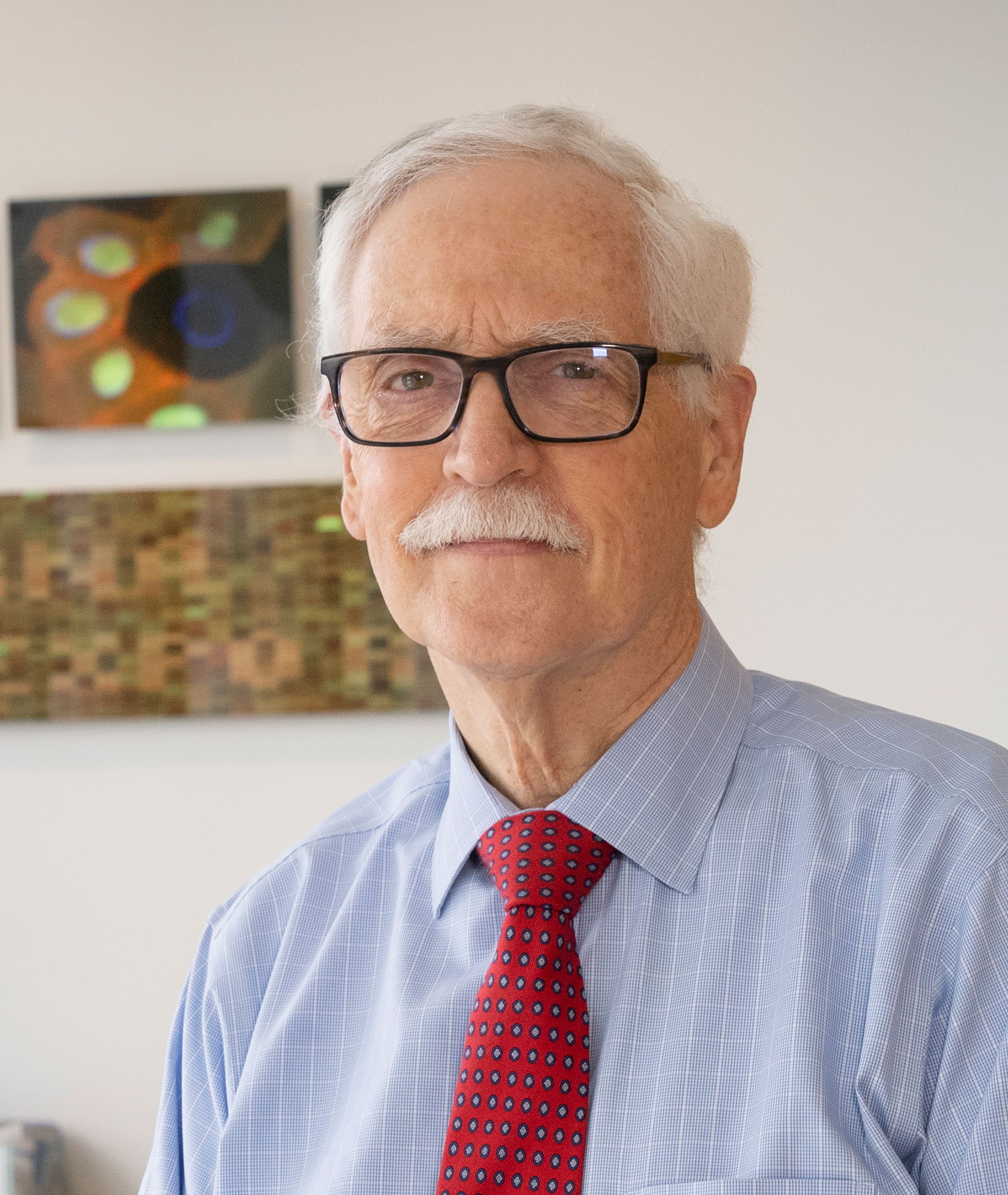
Robert Brown, Jr., MD, DPhil, professor
Donna M. and Robert J. Manning Chair in Neurosciences
Vice Chair of Research, Department of Neurology
Principal Investigator for Brown Lab
Dr. Brown is an internationally known researcher and physician leading the quest to cure neurodegenerative and neuromuscular diseases like amyotrophic lateral sclerosis (ALS), also known as Lou Gehrig’s disease. Renowned for his groundbreaking basic and clinical research on the inherited and genetic basis of neurodegenerative and neuromuscular diseases, Dr. Brown has a record of significant discoveries in identifying gene defects that elucidate how ALS causes neurons to die. In 1993, a team of researchers led by Dr. Brown discovered the first gene linked to the inherited form of ALS, called SOD1.
Dr. Brown is known as a compassionate clinician and physician, who cares for patients suffering from neurodegenerative diseases. He is well known for his work with patient advocacy groups and charitable organizations, such as Project ALS and the ALS Therapy. He is also a founding member of the Northeast ALS Study Consortium and is president of the ALS Therapy Alliance’s Board of Directors.
Dr. Brown has received many honors for his extraordinary commitment to finding cures for neuromuscular diseases, including induction into the Institute of Medicine. He was also the recipient of the National A.L.S. Foundation Fellowship from 1980 to 1982, Plenary Lecturer at the American Academy of Neurology in 2002 and 2007, and is a member of the American Neurological Association. In 2011 he was named a member of the Association of American Physicians (AAP).
Dr. Brown graduated from Amherst College with a degree in biophysics in 1969. He went on to complete a doctorate of philosophy in neurophysiology at Oxford University and received his medical degree from Harvard Medical School in 1975. Following medical school, Dr. Brown completed his internship in internal medicine at Peter Bent Brigham Hospital and his residence in neurology at Massachusetts General Hospital. In 1983, Dr. Brown completed a research fellowship in neuroscience at Children’s Hospital in Boston.
In 1975, Brown joined Harvard Medical School as a clinical fellow and rose to the rank of professor of neurology in 1998, while also serving as Director of the Day Neuromuscular Laboratory and of the Muscular Dystrophy Association Clinic. Internationally recognized for its research and clinical care programs, Brown founded the Day Neuromuscular Laboratory in 1984 to investigate neuromuscular diseases. Dr. Brown continues his work with the Day Neuromuscular Laboratory today at UMass Chan Medical School.

Isabelita Bella, MD
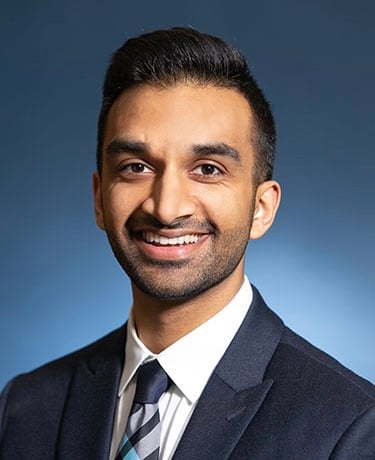
Shiv Bhadola, MD
Shiv Bhadola, MD, assistant professor of neurology, board certified in neurology and fellowship trained in neuromuscular medicine. Dr. Bhadola is a Massachusetts native from Methuen, and he is fluent in English and Gujarati languages. Dr. Bhadola completed his undergraduate degree in Neuroscience at Boston University and earned his medical degree from UMass Chan Medical School in 2019. He completed his neurology residency program at the Boston Medical Center and finished his fellowship training in Neuromuscular Medicine at Mount Sinai Hospital in Manhattan in 2024. Dr. Bhadola returned to UMass Chan as a faculty member in 2024.
Dr. Bhadola, assistant professor in the Neuromuscular Medicine Division serves as the first Transition to Residency lead for neurology and psychiatry, guiding late fourth-year medical students as they prepare for residency in these specialties. Additionally, he mentors first-year medical students through the Longitudinal Preceptor Program and is actively involved in teaching residents and fellows in both the clinic and inpatient settings. Dr. Bhadola specializes in the diagnosis and management of neuromuscular disorders with a particular focus on myasthenia gravis, neuropathy, myopathy, amyotrophic lateral sclerosis (ALS), and amyloidosis. He is also skilled in electrodiagnostic studies (nerve conduction and electromyography), nerve and muscle ultrasound, and botulinum toxin injections for spasticity, dystonia, tremor, spasm, and migraine. His research interests include immune-mediated neuropathies, neuromuscular junction disorders, quality improvement, and health policy.
Dr. Bhadola shares, "As a medical student at UMass, I was inspired by my mentors in the neuromuscular division, who sparked my passion for neuromuscular disorders and the privilege of building long-term relationships with patients and their families. Training through the challenges of the COVID-19 pandemic and caring for diverse patient populations - from Boston's city hospital to Manhattan's Upper East Side - shaped my perspective and deepened my clinical experience. Now, I'm honored to return to UMass Chan, where I have the opportunity to care for the people of the Commonwealth, mentor the next generation of physicians, and continue growing as both a professional and a person."
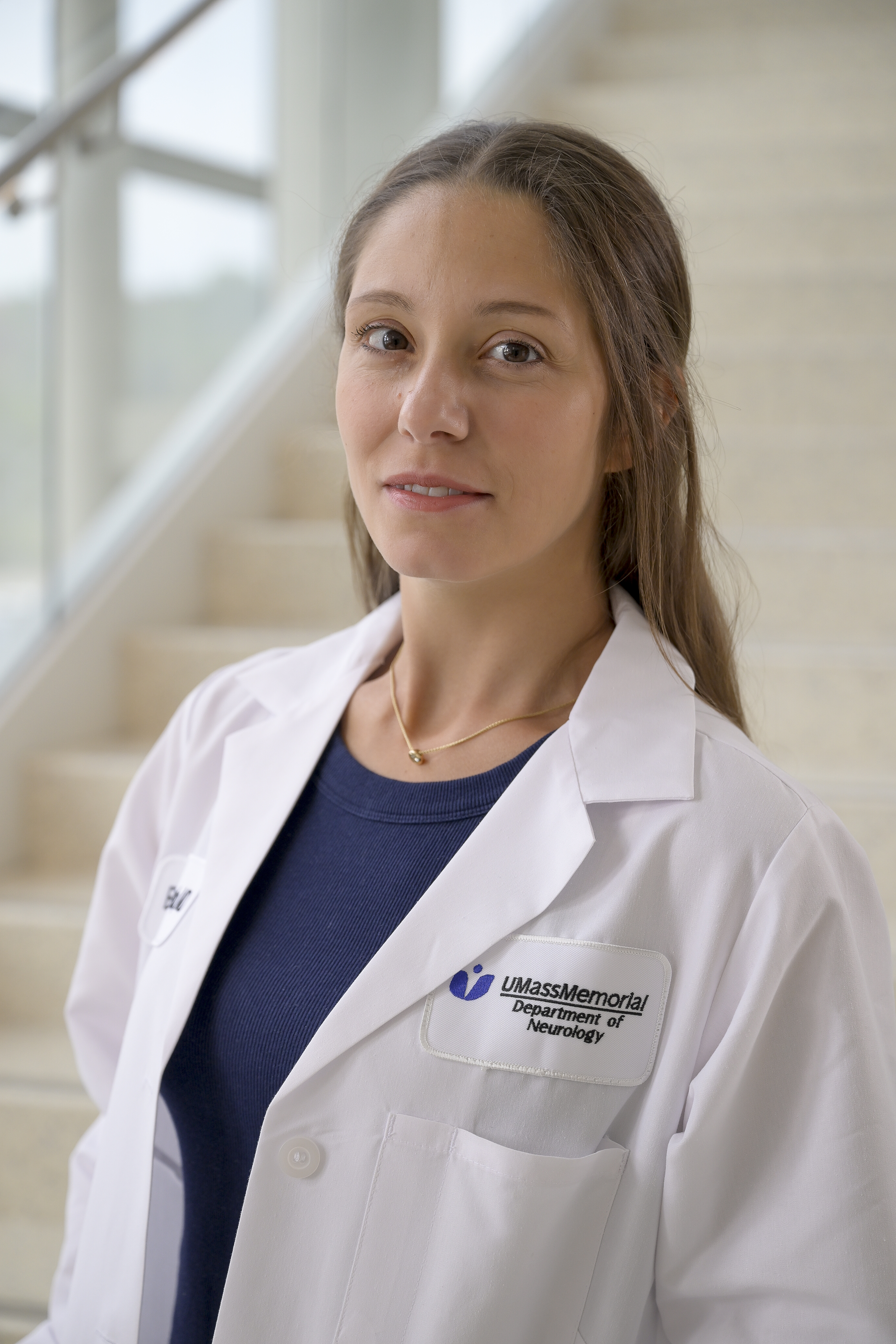
Eleonora D'Ambrosio, MD
Eleonora D'Ambrosio, MD, assistant professor of neurology, medical director of (TiMT) translational institute for molecular therapeutics, and neuromuscular medicine specialist for neurodegenerative diseases. Dr. D’Ambrosio attended Sapienza Medical School in Rome, UMass Chan Medical School, neurology residency program, Brigham–Mass General in Boston, neuromuscular medicine fellowship program, and Nationwide Children’s Hospital in Columbus, Ohio, gene therapy fellowship program.
Dr. D’Ambrosio serves our neurodegenerative disease community to develop gene therapies from the research bench to the patient bedside through the TiMT at UMass Chan. Her research and clinical expertise focus on treating genetic neuromuscular diseases, rare diseases, gene therapy, and ALS through translational science and patient care.
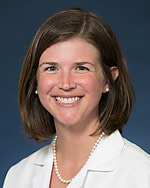
Kate Daniello, MD, FAAN
Kate Daniello, MD, FAAN, associate professor of neurology, program director of the UMass Chan Neurology Residency Program, co-director of Neuropsychiatry Residency Program, Ambulatory Physician Leader, Physician Clinic Director of the UMass Chan Neurology Clinic, and co-director of the Nervous System and Behavior course for first-year medical students.
Dr. Daniello attended (BU) Boston University, School of Medicine, medical school, Harvard University, Mount Auburn Hospital, internship, BU, Boston Medical Center, neurology residency program, Brigham and Women's, Mass General Hospital at Harvard University, neuromuscular medicine fellowship program.
Dr. Daniello focuses on neuromuscular medicine and the Nerve Conduction Study/Electromyography (EMG), seeing patients with all types of neuromuscular conditions including myasthenia gravis, neuropathies (hereditary and autoimmune predominantly), muscular dystrophies, motor neuron disease/ALS and other similar neuromuscular disease conditions. Dr. Daniello shares, "UMass has been a wonderful place to work. I have loved caring for the diverse patient population and educating the next generation of physicians and neurologists!"
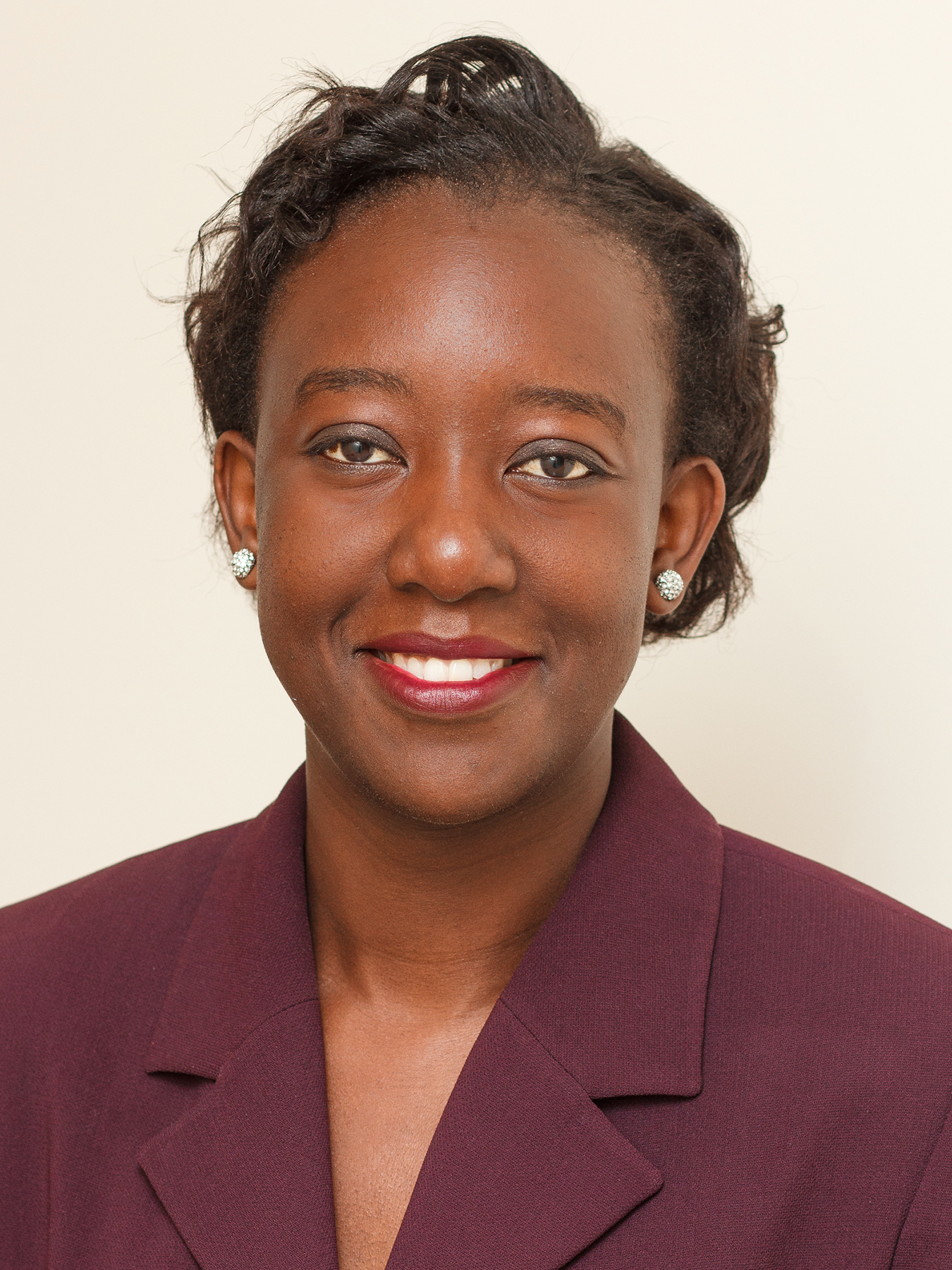
Margaret Owegi, DO
Dr. Owegi is an Assistant Professor of Neurology at UMass Memorial Medical Center, specializing in neuromuscular disorders, including ALS, myasthenia gravis, muscular dystrophy, myopathy, and peripheral neuropathy (CIDP, diabetic neuropathy, genetic causes).Dr. Owegi earned her medical degree from Kansas City University of Medicine and Biosciences, followed by a neurology residency and neuromuscular fellowship at Johns Hopkins Hospital.
Dr. Owegi’s clinical research has primarily focused on ALS, and she has served as a site principal investigator and co-investigator in multiple ALS clinical trials and studies. She will soon be expanding her research interests in clinical trials to myasthenia gravis and possibly CIDP. She aims to advance treatment options, improve patient outcomes and quality of life. Through her work, Dr. Owegi is dedicated to enhancing neuromuscular care, contributing to groundbreaking research, and shaping the future of therapeutic innovations in neurology.
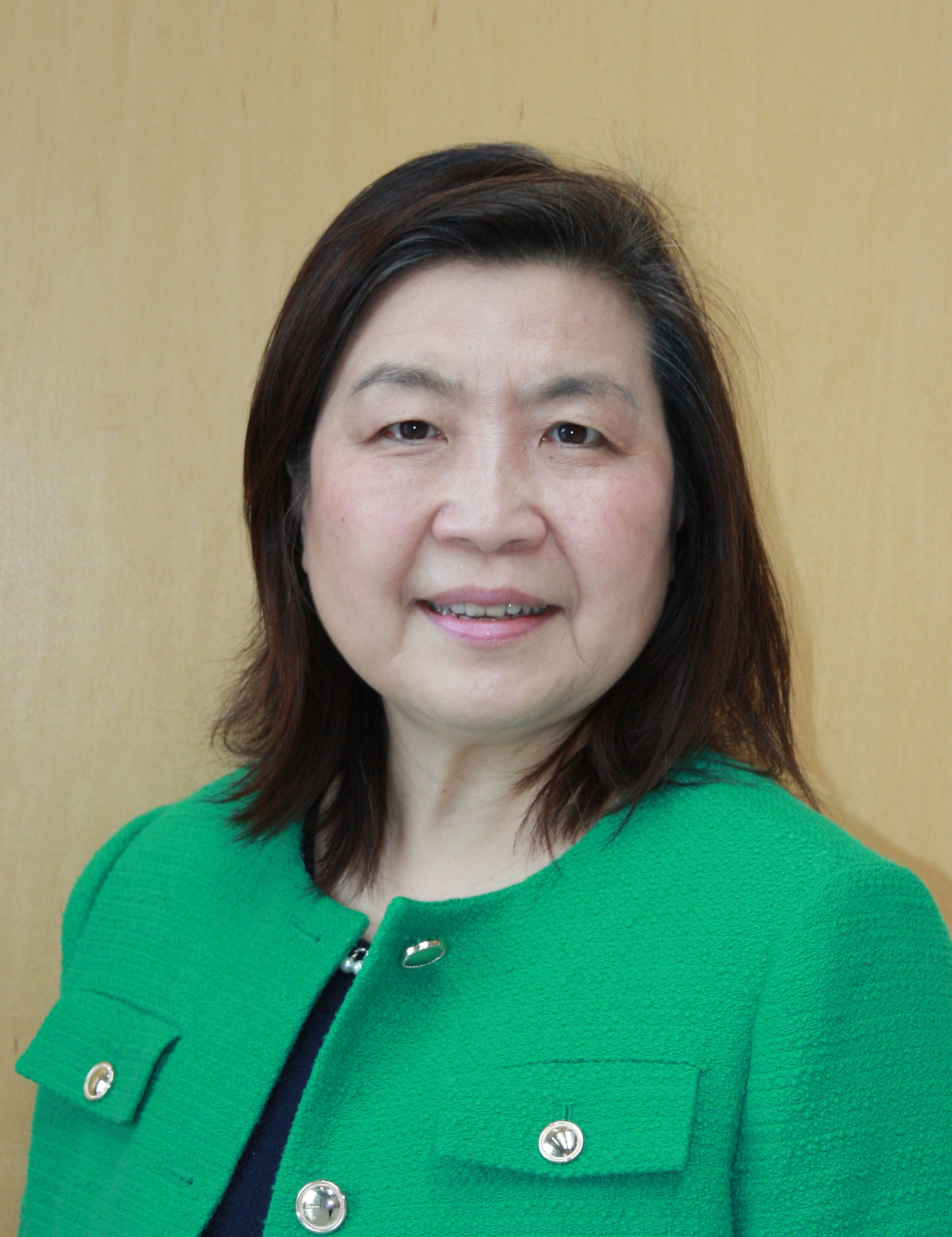
Lan Qin, MD, PhD
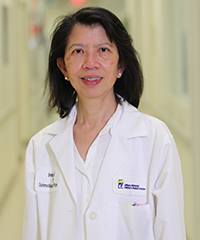
Brenda Wong, MD
Director, Duchenne Muscular Dystophy (DMD) Program
Professor of Pediatrics and Neurology
UMass Chan Medical School
The Duchenne Program is carried out under the leadership of neurologist Brenda Wong, MD. Dr. Wong received her medical degree from the National University of Singapore and was board certified in Pediatrics in the U.K. (MRCP in Pediatrics). She completed her fellowship training in neurology at Cincinnati Children's Hospital Medical Center and continued to direct the Comprehensive Neuromuscular Center there for 19 years.
Driven by the opportunity to focus more fully on her passion — Duchenne and Becker muscular dystrophies — Dr. Wong relocated to Massachusetts in May 2018 to become the founding director of the Duchenne Program. “It has been a dream of mine to have a clinic and research program that is fully dedicated to this disease and research into treatments and a cure. We are committed to providing seamless, full-spectrum care for everyone from infants to adults with Duchenne.”
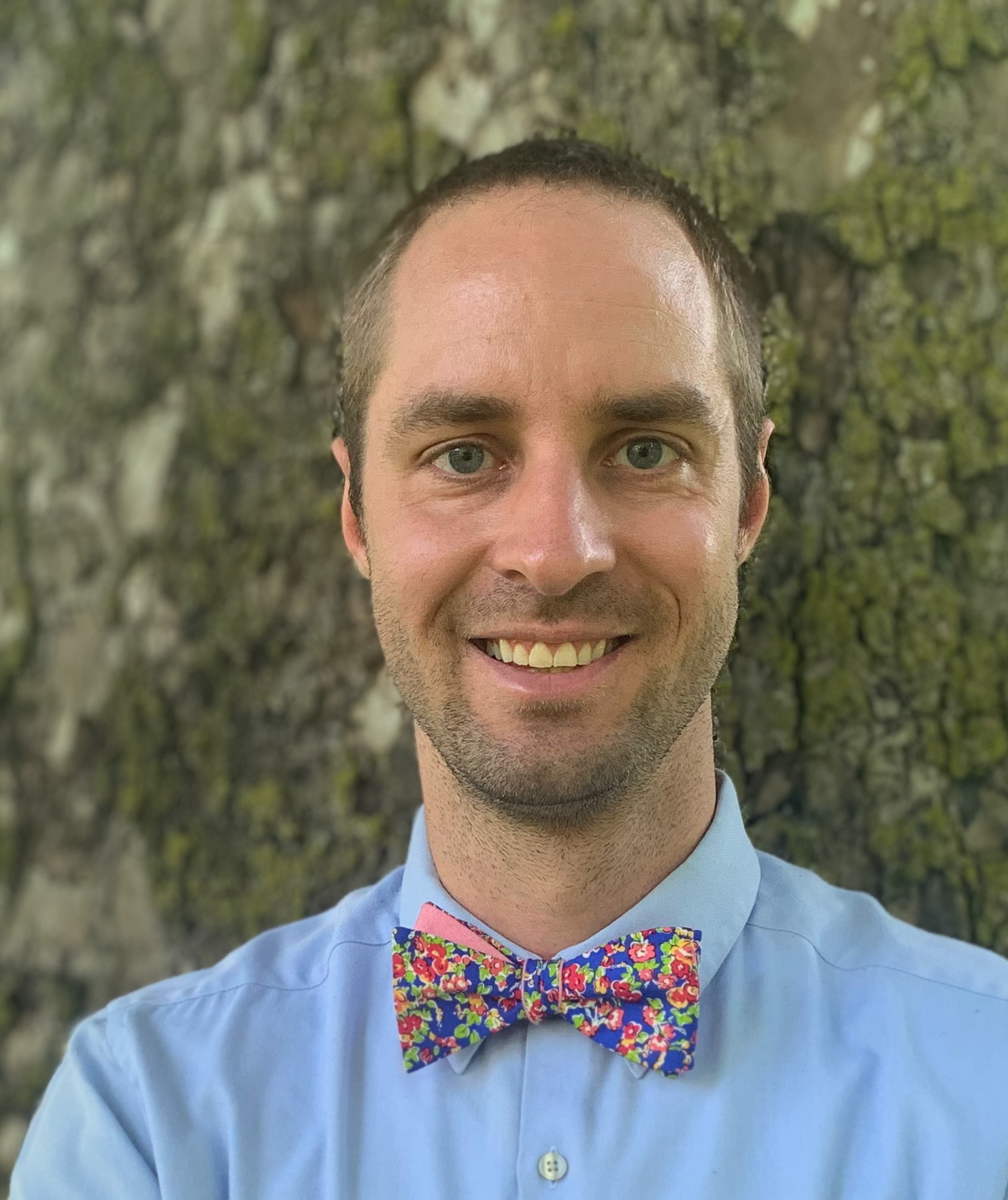
Stephen Chrzanowksi, MD, PhD
Co-Director, Duchenne Muscular Dystrophy (DMD) Program
Assistant Professor of Pediatrics and Neurology
UMass Chan Medical School
Dr. Chrzanowski earned a Bachelor of Science in Biomedical Engineering at the University of Cincinnati and his MD, and PhD at the University of Florida studying muscle physiology under the mentorship of Drs. Glenn Walter and Krista Vandenborne in the ImagingDMD group. He moved to Massachusetts to complete his residencies in pediatrics and child neurology at Boston Children’s Hospital and a Neuromuscular Fellowship at Mass General Brigham, working under the auspices of Dr. Seward Rutkove, developing an understanding of electrical impedance myography (EIM), to assess skeletal muscle health.
Dr. Chrzanowski is interested in studying biomarkers associated with studying biomarkers of Duchenne Muscular Dystrophy and other pediatric neuromuscular diseases. Dr. Chrzanowski formed his research lab to determine if implementing earlier interventions will alter long-term outcomes through developing and quantifying novel treatments.
Dr. Chrzanowski shares, "Working at UMass Chan in the Department of Neurology and the Duchenne program uniquely brings cutting-edge research and patient-centered clinical care together to extend and enhance the lives of people with Duchenne Muscular Dystrophy. Our mission is to deliver the highest quality, most comprehensive care available to the Duchenne community while urgently advancing clinical trials for new therapies - ultimately, improving outcomes for those living with Duchenne."
Neuromuscular Medicine Researchers

Lawrence Hayward, MD, PhD
Dr. Hayward, professor of neurology, director of UMass Chan Neuromuscular Medicine Division, and physician-scientist serves as director of the multidisciplinary Neuromuscular Medicine and FSHD Muscular Dystrophy Clinics. His research focuses on defining molecular mechanisms that cause selected neuromuscular diseases, including ALS (amyotrophic lateral sclerosis), FSHD (facioscapulohumeral) muscular dystrophy, and hyperkalemic periodic paralysis, toward designing more effective treatments for patients with these conditions.
Hayward Laboratory applies expertise in basic muscle biology, cellular and animal modeling, gene regulation, protein biochemistry, and ion channel physiology to understand how genetic changes and environmental influences trigger various pathological responses in these diseases. We collaborate closely with other researchers in the UMass Chan Wellstone Center for FSHD and the UMass Chan Neurotherapeutics Institute.
Learn more here: https://www.umassmed.edu/wellstone/
Lawrence Hayward | Profiles RNS (umassmed.edu)
Lawrence J. Hayward, MD, PhD - UMass Memorial Health

Robert H. Brown Jr., DPhil, MD, the Leo P. and Theresa M. LaChance Chair in Medical Research
Professor of Neurology
Director of the Program in Neurotherapeutics
Brown Lab
Dr. Brown is an internationally known researcher and physician leading the quest to cure neurodegenerative and neuromuscular diseases like amyotrophic lateral sclerosis (ALS), also known as Lou Gehrig’s disease. Renowned for his groundbreaking basic and clinical research on the inherited and genetic basis of neurodegenerative and neuromuscular diseases, Dr. Brown has a record of significant discoveries in identifying gene defects that elucidate how ALS causes neurons to die. In 1993, a team of researchers led by Dr. Brown discovered the first gene linked to the inherited form of ALS, called SOD1.
Dr. Brown joined UMass Chan Medical School in 2008. Shortly after joining UMass Chan, Dr. Brown and his colleagues identified a new genetic mutation linked to ALS which is estimated to account for 5 to 10 percent of inherited cases. Discovery of this mutation, called FUS/TLS, was named one of the most cited papers from 2008 to 2010 by Thomson Reuters. Though it’s still not clear how the FUS/TLS mutation causes ALS, scientists know that the FUS/TLS protein plays a number of roles in the neuron cell. In healthy neuron cells, the FUS/TLS protein is located predominately in the cell nucleus. Samples from patients with the FUS/TLS mutation show a concentration of the FUS/TLS protein in the cytoplasm of the cell, however, outside of the nucleus. This misplaced protein is believed to contribute to cell death in neurons.
Dr. Brown has also identified disease genes in other inherited neurodegenerative and neuromuscular diseases such as hyperkalemic periodic paralysis, Miyoshi muscular dystrophy and hereditary sensory neuropathy.
Dr. Brown and his team have been very fortunate to receive support from a diversity of groups, including the locally-based organization, Angel Fund, and national partner, CVS Pharmacy, both of which have been raising money for ALS research for more than 10 years.

Margaret Owegi, DO
Dr. Owegi, assistant professor of neurology, primarily focuses her clinical research on ALS, and she has served as a site principal investigator and co-investigator in multiple ALS clinical trials and studies. She will be expanding her research interests soon to clinical trials of myasthenia gravis and possibly CIDP. She aims to advance treatment options, improve patient outcomes and quality of life. Through her work, Dr. Owegi is dedicated to enhancing neuromuscular care, contributing to groundbreaking research, and shaping the future of therapeutic innovations in neurology.
Clinical Research Coordinators
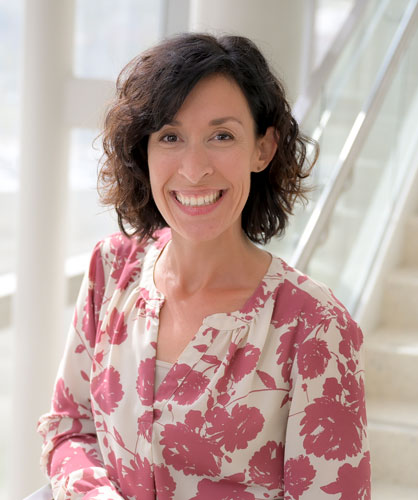
Catherine Douthwright, PhD
Catherine Douthwright, PhD, received her B.S in Biochemistry from SUNY Geneseo in 2008. She received her doctorate in Biomedical Research from UMass Chan Medical School. Dr. Douthwright conducted her thesis studying various proteins involved in the pathogenesis of ALS in the lab of Dr. Daryl Bosco. After receiving her PhD in 2014, she joined Dr. Robert Brown’s clinical research team where she now oversees the operation of numerous research studies and clinical trials for patients with ALS and other neuromuscular diseases.
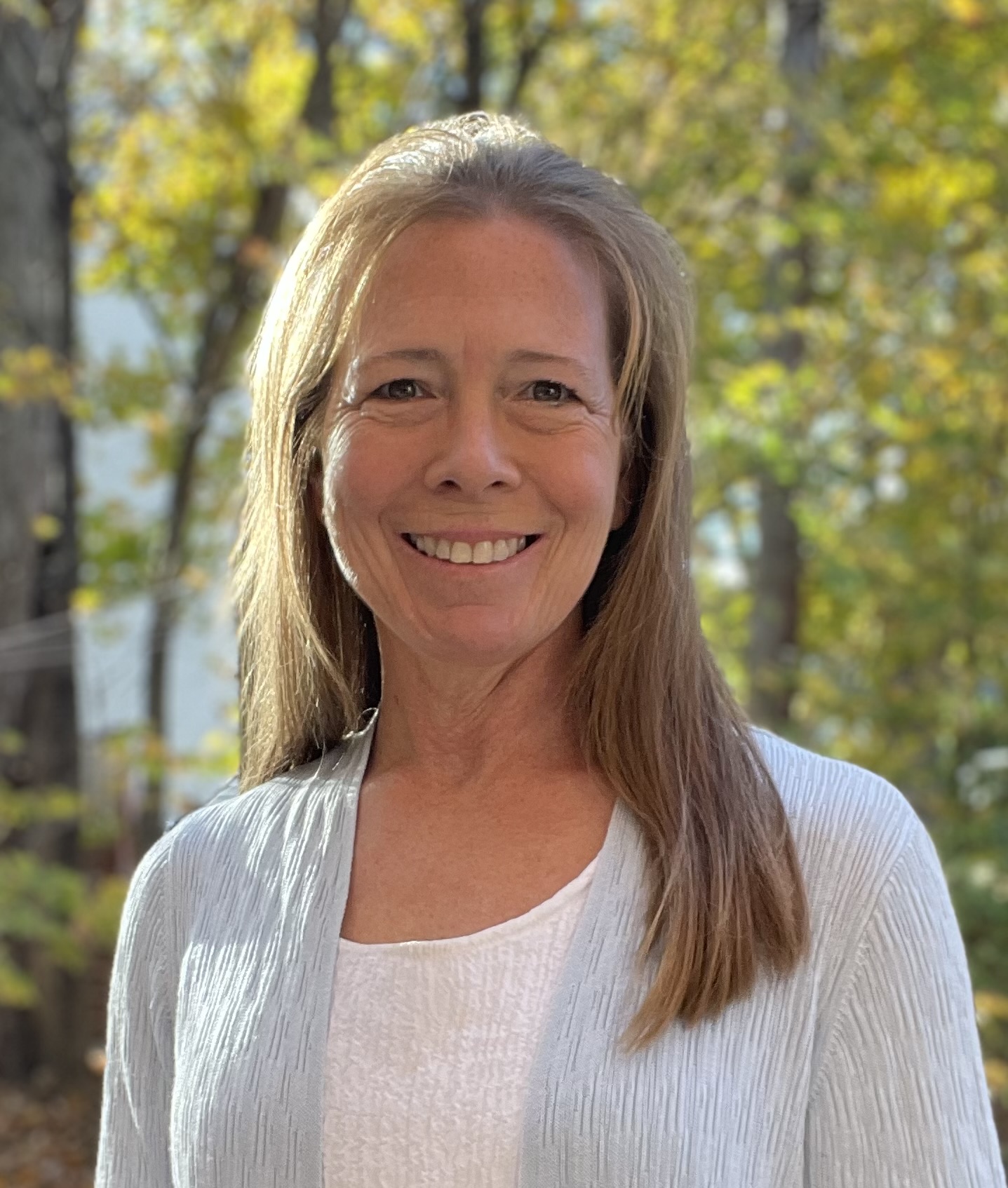
Sheryl Kelley, MPH, Neuromuscular Medicine Clinical Research Coordinator
Sheryl Kelley, MPH, joined the Department of Neurology in January of 2024, supporting the Neuromuscular Division. Sheryl has worked in research for over 19 years, which includes the roles of director of data quality, focused on efficacy data, and clinical finance director. She earned a Master of Public Health (MPH) with a concentration in Biostatistics from Boston University and a Bachelor of Science in Biology from Stonehill College. In her Coordinator role, Sheryl finds interacting directly with patients to be very rewarding.
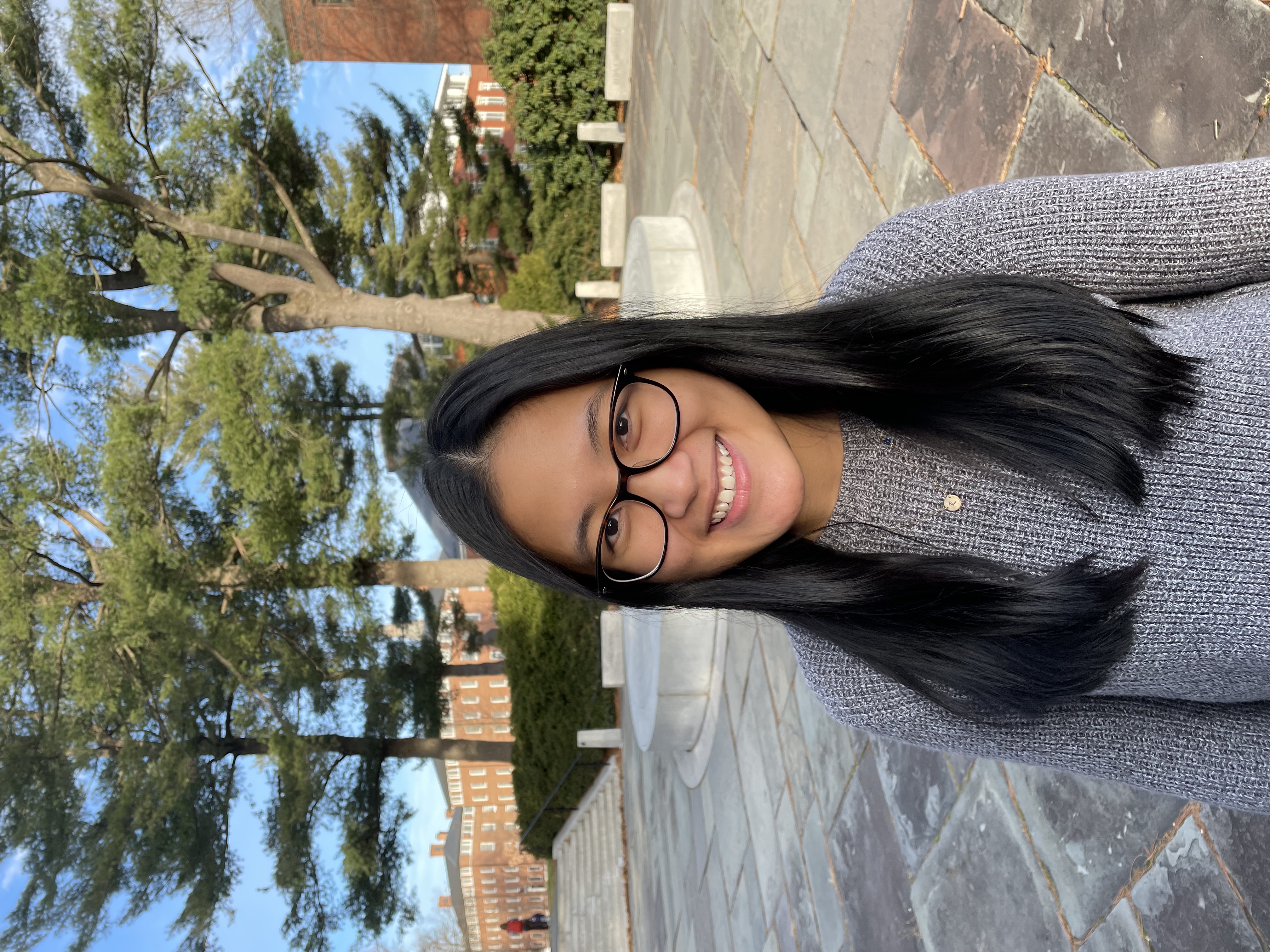
Reylyn Tanchiatco, Clinical Research Coordiantor
Reylyn Tanchiatco, clinical research coordinator, has supported the neuromuscular research team for over two years. In this role, Reylyn is responsible for conducting protocol activities and ensuring adherence to regulatory guidelines and ethical standards while coordinating between investigators, sponsors, and participants. She has learned to adapt to complex situations with flexibility and quick thinking. Reylyn enjoys the humanistic approach in the clinic and the mentorship provided through the research team.

